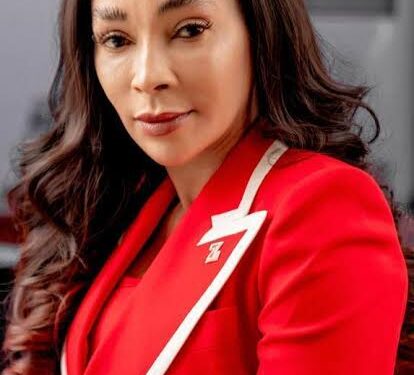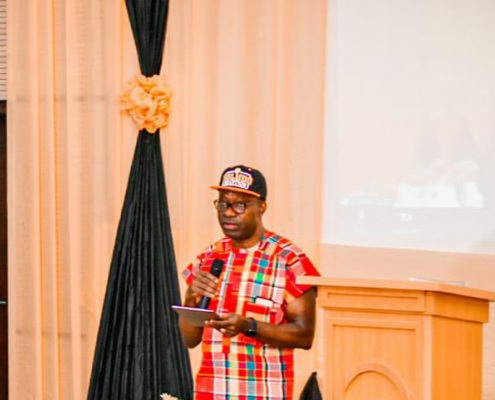In the high-stakes world of banking, the line between success and failure is often razor-thin. For Ebenezer Onyeagwu, the former Group Managing Director (GMD) of Zenith Bank Nigeria PLC, this line was defined by a staggering N430 billion loss through impairment in 2023, a financial catastrophe that not only cost him his coveted position but also fractured his relationship with his cousin and the bank’s chairman, Jim Ovia.
Indeed, Onyeagwu’s reign at Zenith was, for a period, a golden age. Profits soared, and the bank’s reputation for stability and growth solidified. He was seen as Ovia’s heir apparent, a natural successor to guide Zenith into the future. But beneath the veneer of success lurked a hidden danger: a staggering N430 billion loss through asset impairment in 2023.
Ebenezer Onyeagwu was on the cusp of securing another five-year tenure as the GMD of Nigeria’s leading Money Deposit Bank. His tenure had been marked by significant profits and growth, and he was seen as a pivotal figure in maintaining Zenith Bank’s position at the forefront of the industry. However, 2023 proved to be a year of unprecedented challenges and missteps.
Under Onyeagwu’s leadership, Zenith Bank declared over N600 billion in profit, a figure that should have been a testament to his successful stewardship. Yet, hidden beneath this impressive facade was a financial anomaly that would trigger his downfall: an impairment loss of N430 billion. This massive reduction in the value of the bank’s assets pointed to severe lapses in risk management and asset valuation, raising questions about Onyeagwu’s competence and oversight.
The news of the impairment loss sent shockwaves through Zenith Bank’s executive corridors. Jim Ovia, the founder and chairman of the bank, known for his sharp acumen and strategic vision, was reportedly livid. The impairment not only wiped out a significant portion of the bank’s assets but also exposed fundamental weaknesses in its risk management practices, which were supposed to be one of the bank’s strengths.
Sources close to the bank disclosed that the Risk Management Unit, led by a trusted ally of Onyeagwu, failed to anticipate or mitigate the financial risks that led to the impairment. This failure was seen as a direct reflection of Onyeagwu’s leadership, further straining his relationship with Ovia.
The fallout was swift and unforgiving. Ovia, accusing Onyeagwu of gross incompetence, moved quickly to reshape the bank’s leadership. In a decisive move, he announced Adaora Umeoji as the new Managing Director and CEO, a decision that did not sit well with Onyeagwu and sparked a leadership crisis within the bank.
Ovia orchestrated a boardroom coup. Adaora Umeoji, a seasoned banker with impeccable credentials, was chosen as the new GMD/CEO. This decision sent shockwaves through the bank. Onyeagwu, understandably displeased, refused to go quietly. Whispers of behind-the-scenes power struggles and attempts to block Umeoji’s appointment began to circulate.
Dame Adaora Umeoji, whose tenure as GMD/CEO is set to begin on June 1, 2024, represents a significant shift in Zenith Bank’s leadership. As the first female GMD/CEO in the bank’s history, her appointment is both historic and strategic. Umeoji’s rise through the ranks of Zenith Bank is a testament to the institution’s commitment to internal grooming and succession planning.
With nearly 30 years of banking experience, 26 of which were with Zenith Bank, Umeoji brings a wealth of expertise and stability to the role. Her academic credentials are equally impressive, including a Bachelor’s Degree in Sociology from the University of Jos, a Bachelor’s Degree in Accounting, a First-Class honours in Law from Baze University, Abuja, and a Master of Laws from the University of Salford, UK. Additionally, she holds an MBA from the University of Calabar and a Doctorate in Business Administration from Apollos University, USA.
Umeoji’s extensive education is complemented by advanced management training from prestigious institutions like Harvard Business School and Columbia Business School. Her deep understanding of both the domestic and global banking landscapes positions her as a formidable leader for Zenith Bank’s future.
The Fallout: A Chilling Effect and a Fractured Leadership
Despite her qualifications, Umeoji’s appointment has not been without controversy. Onyeagwu, still reeling from his ousting, has reportedly been at loggerheads with Ovia, making the leadership transition tumultuous. Efforts by Onyeagwu and former Central Bank Governor Godwin Emefiele to halt Umeoji’s appointment were too little, too late.
The leadership change has exposed rifts within the bank’s executive ranks, with factions emerging in support of either Onyeagwu or Ovia. This internal discord threatens to undermine the bank’s stability at a time when confidence in its leadership is crucial.
Boardroom Battles
Ovia’s unwavering support for Umeoji has exacerbated the internal turmoil. Senior management and members of the board are reportedly divided into rival camps, each fiercely defending their chosen leader. The boardroom, once a place of strategic discussions and decision-making, has become a battleground of personal vendettas and professional power plays.
The air in Zenith Bank’s headquarters is thick with tension. What used to be a cohesive and collaborative environment has turned into a toxic zone where trust is in short supply. Whispered conversations in hallways, secretive meetings after hours, and a pervasive sense of paranoia now characterize the workplace.
The rivalry is cutthroat, with both camps deploying every possible tactic to gain an upper hand. Supporters of Onyeagwu have accused Umeoji’s allies of nepotism and favoritism, arguing that her appointment was driven more by personal loyalty than merit. Meanwhile, Umeoji’s supporters criticize Onyeagwu for the catastrophic impairment and his subsequent attempts to undermine her leadership.
Jim Ovia’s influence looms large over the entire saga. Known for his strategic brilliance and sharp business instincts, his decision to back Umeoji is seen as a clear message about his vision for the bank’s future. However, this has not deterred Onyeagwu and his loyalists from challenging the new order, leading to frequent clashes and a fractured leadership.
The crisis has not gone unnoticed by the financial markets. Investors and analysts are closely watching the developments, concerned that the internal strife could impact the bank’s performance. Confidence in Zenith Bank’s stability is paramount, and any perception of dysfunction at the top could have serious repercussions.
For Umeoji, the immediate challenge is to restore stability and confidence within the bank. She will need to navigate the treacherous waters of internal politics, rebuild trust among senior management, and demonstrate that her leadership can steer the bank towards a prosperous future.
As Zenith Bank moves forward, the legacy of the N430 billion loss will continue to cast a long shadow. The bank’s ability to overcome this crisis and emerge stronger will depend largely on Umeoji’s leadership and her ability to unify a divided team. For Ovia, the hope is that his strategic bet on Umeoji will pay off, ensuring that Zenith Bank retains its position at the pinnacle of Nigeria’s banking industry.
In the end, the saga of Zenith Bank’s leadership crisis serves as a reminder of the high stakes in the banking industry, where fortunes can change overnight, and the cost of failure is measured in billions






